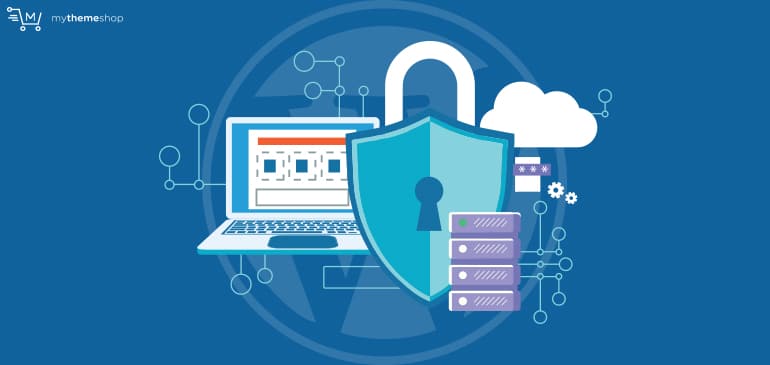The Power of 7G WAF Firewalls: Why Clients Need Them for Enhanced Security
In an increasingly interconnected world, the protection of online assets has become paramount. The evolving landscape of cybersecurity threats calls for advanced measures to safeguard sensitive data and ensure uninterrupted business operations. In this context, 7G Web Application Firewall (WAF) firewalls have emerged as a vital security solution. Coupled with the robust capabilities of WPFail2Ban, these technologies provide an unmatched defense against malicious attacks and potential vulnerabilities. This article explores the significance of 7G WAF firewalls and why clients should consider implementing them to fortify their digital infrastructure.
- Understanding 7G WAF Firewalls:
7G WAF firewalls represent the latest generation of web application security solutions. Designed to protect against emerging threats, they employ cutting-edge technologies to defend web applications, APIs, and other digital assets from unauthorized access, data breaches, and application-layer attacks. Unlike traditional firewalls, 7G WAF firewalls focus specifically on application-level security, ensuring robust protection for websites and web-based services.
- Unmatched Security Capabilities:
With an arsenal of advanced security features, 7G WAF firewalls provide clients with comprehensive protection. These include:
a. Behavioral Analysis: Leveraging machine learning algorithms, 7G WAF firewalls analyze user behavior patterns to identify anomalies and potential threats, effectively mitigating sophisticated attacks.
b. Real-time Threat Intelligence: By integrating with threat intelligence platforms, 7G WAF firewalls stay updated on the latest attack vectors, enabling proactive defense against emerging threats.
c. Zero-Day Attack Prevention: With the ability to identify and block previously unknown vulnerabilities, 7G WAF firewalls offer robust protection against zero-day attacks, reducing the risk of exploitation.
d. Granular Access Controls: 7G WAF firewalls provide granular control over access to web applications, allowing clients to define specific rules, whitelist trusted IP addresses, and blacklist potential threats.
- The Importance of WPFail2Ban:
WPFail2Ban is a powerful WordPress plugin that complements the security capabilities of 7G WAF firewalls. It works by monitoring login attempts made to WordPress sites and blocking IP addresses after repeated failed login attempts. This serves as an effective deterrent against brute-force attacks, where hackers attempt to gain unauthorized access to WordPress admin panels.
By integrating WPFail2Ban with 7G WAF firewalls, clients can significantly enhance their WordPress site security. The plugin helps protect against credential stuffing attacks, where stolen login information from one platform is used to gain unauthorized access to another, often targeting users who reuse passwords.
- Why Clients Need 7G WAF Firewalls:
a. Robust Protection: 7G WAF firewalls provide an essential layer of security, safeguarding web applications from a wide range of threats, including cross-site scripting (XSS), SQL injection, and distributed denial-of-service (DDoS) attacks.
b. Compliance Requirements: Many industries, such as healthcare and finance, are subject to stringent regulatory standards. Implementing a 7G WAF firewall helps organizations meet these requirements by ensuring the security and integrity of sensitive data.
c. Reputation Preservation: A successful cyberattack can significantly damage a client’s reputation. By investing in 7G WAF firewalls, businesses demonstrate their commitment to protecting user data and maintaining a secure online presence.
d. Cost-Effectiveness: The financial repercussions of a successful cyberattack can be substantial. Investing in 7G WAF firewalls is a proactive measure that helps mitigate the risk of data breaches and potential financial losses.
In the face of evolving cybersecurity threats, clients must prioritize the protection of their web applications and digital assets. 7G WAF firewalls, with their advanced security capabilities and integration with plugins like WPFail2Ban, offer clients a powerful defense against malicious attacks. By implementing these technologies, clients can fortify their digital infrastructure, ensure uninterrupted business operations, meet compliance requirements, protect their reputation, and mitigate financial risks associated with cyberattacks.
As the threat landscape continues to evolve, investing in 7G WAF firewalls becomes crucial for organizations of all sizes. By staying ahead of emerging threats and leveraging cutting-edge technologies, clients can effectively defend their web applications, APIs, and other digital assets from unauthorized access, data breaches, and application-layer attacks. The combination of behavioral analysis, real-time threat intelligence, zero-day attack prevention, and granular access controls offers a robust security posture.
In addition to the advanced features of 7G WAF firewalls, the integration of WPFail2Ban further strengthens the security of WordPress sites. By blocking IP addresses after repeated failed login attempts, WPFail2Ban acts as a deterrent against brute-force attacks and credential stuffing. Clients can protect their WordPress admin panels and user accounts from unauthorized access, reducing the risk of compromised data and compromised user trust.
By investing in 7G WAF firewalls and integrating them with WPFail2Ban, clients demonstrate their commitment to security and safeguarding sensitive data. They can meet regulatory compliance requirements, avoid financial losses associated with data breaches, and preserve their reputation in an increasingly competitive digital landscape.
In conclusion, the implementation of 7G WAF firewalls coupled with the use of plugins like WPFail2Ban is crucial for clients who prioritize the security and integrity of their web applications. With the ever-increasing sophistication of cyber threats, organizations must adopt advanced security measures to stay ahead of attackers. By embracing these technologies, clients can create a resilient defense system, mitigate risks, and ensure a secure online presence in an interconnected world.



